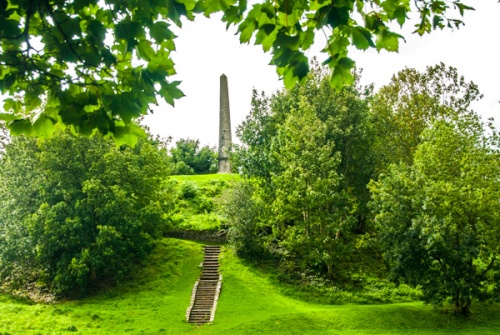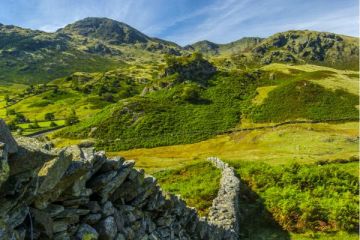
The mound rises about 11 metres high and is roughly 18 metres across at the summit, sloping to 46 metres diameter at the base. Below the mound is a small triangular level area, or bailey, which was later used as a bowling green, then as a public park.

History
Castle Howe was first fortified around 1092 when William II tried to push the Norman frontier north into Scotland. We do not know for certain who erected the castle, but it may have been Ivo de Taillebois, who was granted the Barony of Kentdale (Kendal) by William. Alternatively, it may have been another Norman noble by the name of Ketel.
The motte was built on a natural ridge, strengthened by a system of earthwork banks and ditches. It would have been protected by a timber palisade around the top of the mound, surrounding a wooden keep, and a similar palisade would have encircled the bailey, where timber service buildings would have stood. Of these timber buildings, no trace can now be found.

Sometime in the first decade of the 13th century, the Castle Howe site was abandoned in favour of Castle Hill, across the river, where Kendal Castle now stands. The earlier earthwork and timber castle was left to decay.
At least, this is the normal version of history; it is equally possible that both castles were in use at the same time, one administering the town below, the other controlling the large estates of Kentdale.

Castle Howe is today a rather pleasant green space, with steps built into the side of the motte so you can climb to the monument and get excellent views across the rooftops of the town below and over the river to Kendal Castle in the distance. The site is cared for by the South Lakeland District Council, and there is an information panel and map of the site at the base of the motte.
 We've 'tagged' this attraction information to help you find related historic attractions and learn more about major time periods mentioned.
We've 'tagged' this attraction information to help you find related historic attractions and learn more about major time periods mentioned.



